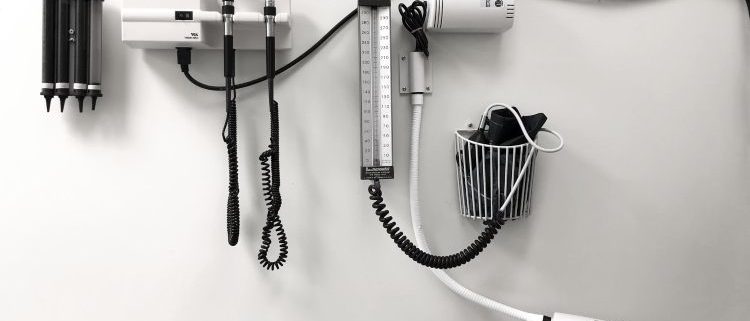Should Mental Health Be A General Practitioner’s Job?
The landscape of healthcare has frequently been changing – especially in its mental health division. The rate of mental illnesses has reached an all-time high in recent times, putting pressure on the healthcare industry to deliver proper treatment to sufferers of these disorders.
For example, certain statistics explain that, as of 2019, over 43.8 million people will experience a mental illness in any given year. Luckily, awareness is also growing in mental health struggles. Therefore, reaching out for help without shame is becoming easier for those who would have previously struggled in silence with depression, anxiety, bipolar disorder, or other mental health disorders.
Under scrutinizing debate is the controversial topic of whether primary care physicians should be treating their patients for mental health concerns. It’s a fairly common phenomenon that, when people begin suffering from alarming mental health irregularities, their first course of action is to seek out a family care doctor.
This decision is, perhaps, because people don’t know where to turn at first. This choice is likely the smartest and most proper course of action when someone is experiencing abnormal psychological symptoms. However, sometimes, patients make their stop at a family doctor and then go no further.
Psychiatrists Vs. Family Physicians
For multiple reasons, a specialized psychiatric medical doctor must be sought out for concerns specifically regarding mental health. Sometimes, it’s even necessary to seek a reputable in-residence mental health care center to stabilize a patient before they begin routinely visiting a psychiatrist.
General practitioners are trained excessively to treat a broad range of illnesses, but psychiatry is as delicate a branch of healthcare as any other specialty. Therefore, it requires a comprehensive initial assessment and thorough follow-ups.
The human mind is complex and still being studied for all of its mysteries. Although family doctors are highly-trained professionals, MDs who are explicitly trained in psychiatry ought to be sought out for long-term treatment considering their career-long focus on the human brain.
What Exactly Makes Psychiatry Essential In Treating Mental Illness?
Doctors of psychiatry, or psychiatrists, have gotten some bad raps in the past. However, it’s important to remember that psychiatrists nowadays are regulated heavily by statewide professional entities called boards of psychiatry.
The board of psychiatry in each state exists solely to monitor professionals that practice in the psychiatric industry heavily. They enforce proper ethics and ensure that no improper or illegal actions take place.
Psychiatrists are required to renew their licenses in psychiatry frequently. Besides this, these particular MDs devote their entire days and research time to the human mind. Often, they’re to work closely and in conjunction with clinical psychologists (therapists), thus providing a more specific and integrative treatment plan for clients seeking help for their mental illness.
Thorough Initial Examinations And Consistent, Specific Follow-ups
We encourage those who need mental health services to pursue assistance specifically from psychiatrists that will do a thorough initial assessment of a clients’ life and mind.
Initial psychiatric assessments serve a specific purpose: gather sufficient information to make an educated diagnosis. Initial psychiatric evaluations are typically:
- Hour-long appointments used to collect well-rounded details of any particular client’s life and mental health history
- The standard first step in establishing an outpatient treatment plan for psychiatric patients
- An important way for a doctor to attain a much higher level of insight on a patient’s mental disorder than a quick check-in with a family physician
With an overall shorter amount of face-to-face time with patients, family care physicians and general practitioners are unable to draw extensively-accurate conclusions of a patient’s proper diagnosis (or diagnoses). Improper diagnoses have the potential to cause pervasive damage to those with mental disorders, considering that inadequate treatment may inevitably follow as a consequence.
Individuals in need of mental health help deserve to have the proper time, diagnosis, and treatment provided to them so that they can reach a sustainable headspace.
Expertise In Medication
Although many general practitioners are not hesitant to divvy out psychiatric medications, this is probably a better task to leave to a specialist. Sometimes patients visit general practitioners for immediate or urgent help, and it is necessary to treat them quickly with a temporary medication until they can make an appointment with a psychiatrist. However, even in these cases, it may be best to seek a reputable mental health treatment center instead.
Psychiatrists spend lengthy amounts of time studying the effects of SSRIs (Selective Serotonin Reuptake Inhibitors) and other mental health medications that are frequently prescribed. These specialists have the most knowledge possible of any type of doctor, including general practitioners.
Often, these medications are able to work wonders for patients who have been correctly diagnosed and who do not have any adverse side effects. Psychiatrists have the capabilities necessary to closely monitor their patients and watch for any negative reactions until optimal mental stabilization is achieved.
Although a quick visit to a general practitioner regarding mental health isn’t awful, it’s still necessary to follow up on this appointment with a visit to a psychiatric specialist. An ethical, professional, and comprehensive psychiatric treatment plan has the potential to change one’s quality of life entirely and indefinitely. With a proper diagnosis and a well-rounded treatment plan, patients who seek assistance for their mental illnesses are – more frequently than not – able to alter their lives and minds forever.








Leave a Reply
Want to join the discussion?Feel free to contribute!